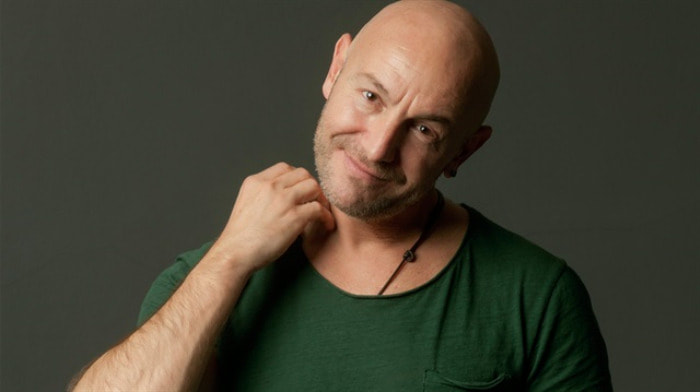 Cagan Irmak is a highly regarded Turkish director and screenwriter. A graduate of the Faculty of Communication, Department of Radio, TV and Cinema from Ege University, Irmak has been hugely successful with his films, series and short films. His best known project is the series "Çemberimde Gül Oya", which narrates the complex, tense and political situation of the 1980s and the experiences of the next generation in the 2000s. He is also director and co-writer of Unutursam Fısılda, a movie that focuses on the life of a singer from the 1970s, starring Farah Zeynep Abdullah, Mehmet Gunsur and Kerem Bursin. The movie has been studied widely for its familiar structure of storytelling from the Yesilcam era. Apart from a couple of his projects, Mr. Irmak has been the scriptwriter for all his movies. Recently he chatted with Episode Yerli magazine about BluTVs Yesilcam project, where Cagatay Ulusoy has the starring role as Semih Ates, and we get a rare glimpse into this amazing filmmaker who continues to contribute significantly to the growth of Turkish cinema. The Interview Translated by CUNA 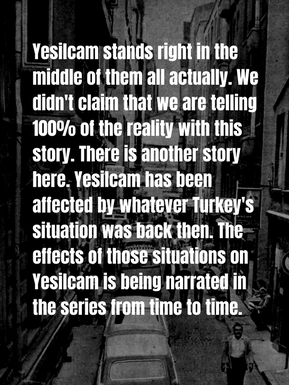 When it comes to the naivete, comedy and drama of Yesilcam movies, you are deemed as the most popular director among others who still has the traces of that phenomenon today. What does Yesilcam mean to you as an era and a series in terms of this fact? Yesilcam is remembered as a combination of naivete, comedy and drama but to me, there is another face of it except for these ones. We can't regard that period only as naivete, comedy and drama. During those years, due to the broadcast principles of TRT channel, only that face of Yesilcam has been reflected. However, there was also a time in Yesilcam when director's movies were founded and political messages were involved. I look at it as a whole so to me, there are various beauties of Yesilcam. It would be unfair to remember Yesilcam only with the words we counted in the beginning. So it means a lot to me. The sources that I take advantage from, the movies that introduced me to the cinema, they all lie in that period - each having their own colors and variety. Yesilcam is a bigger frame for me. You generally make movies out of the scripts you write yourself; it applies the same to the period dramas you made. But in Yesilcam, the script was written by Levent Cantek and Volkan Sumbul. As a know-how writer-director in Yesilcam period and movies, did you contribute to the script? Were there any changes you made on the script or any suggestions? I generally shoot what I write. In this one, I didn't really interfere with the script. It was a well-written one and it was already one of the biggest factors that made me accept the offer. I couldn't be a part of the script writing process. I provided my own interpretation as a director and I did it while shooting. Honestly, I have no contributions in the script. Starting from the midst of 2000s, there has been an increase in the number of series and movies made which are especially about our recent history. The audience seriously admired them and they are still being watched. Cemberimde Gul Oya, Dedemin Insanları... These are the projects that provide a critical perspective on the political events of recent history and on the other hand they make people argue about the official historical narratives. However, we can't say that these types of projects can be made for tv today. Where do you think Yesilcam stands in this scale? Why do you think the channels and production companies are more distant than before to the projects that look at the history from different point of views? Yesilcam stands right in the middle of them all actually. We didn't claim that we are telling 100% of the reality with this story. There is another story here. Yesilcam has been affected by whatever the Turkey's situation was back then. The effects of those situations on Yesilcam is being narrated in the series from time to time. Apart from this, I don't think that channels or production companies are distant to this type of projects. It's that they prefer to focus on particular periods. And it stems from the changing taste of the audience. For instance, there is a new trend that is running right now and five years ago there was a different one. When a craze is consumed, another one arrives, maybe a teen series or something else. I'm not underestimating anything. It's just they can be seen as a reflection of the needs and current state of mind of the public. Cemberimde Gul Oya was a political series but it was my choice to do it and serve it. If somebody else wrote such a script, I don't think people or the channels would say no to it. 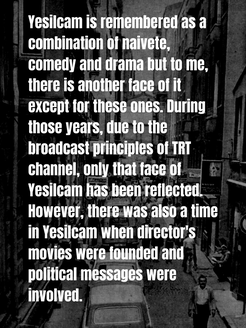 Filming a series for a digital platform that has a drawn frame, with each episode having normal length and with an opportunity that was given to spend enough time to prepare prior to the shooting. And doing this for a period story. How was the time you spent with Blutv as a director? What were the advantages and disadvantages - if there were any? You have already given the answer in your question. It has a drawn frame, each episode has a normal length, enough time is being spent on preparation. I worked with an amazing team. I worked happily and had my freedom while working. So I didn't really see any disadvantages. Maybe the fact that digital platforms don't have a big amount of viewers like tv channels can be a disadvantage. I hope one day these platforms can reach out to larger populations so that more people can watch what we do. Interview: Ozlem Ozdemir, Episode Yerli. For digital copies of the magazine, you can buy on the stands and elsewhere. It is also available on Magzter. Cagan Irmak & Cagatay Ulusoy Even though this is the first time Cagan Irmak and Cagatay Ulusoy are working together, it is not the first time that they are meeting. Both of them were in attendance at the 4th Turk Film Festival in Rome in 2015, along with other artistes such as Kenan Imirzalioglu, Ferzan Ozpetek, Mehmet Gunsor, and more. These are some photos from that event. During his interview with ranini.tv, Cagatay said of Cagan, "Cagan is a very successful director who really loves his job, knows the period well, knows its textures, knows the lines between the lines, follows life in every aspect. His observation skills are very impressive." From a viewer's perspective, and especially that of an international fan, this production has managed to pull the best of breed from all disciplines, and the love for their craft reflects in the final output. Yesilcam is an intelligent show that pays homage to the nostalgic era of Turkish cinema in many ways; as a historical account as well as the style of storytelling that presents social and family values through dramatic conflicts. If you do not have the show on your watchlist yet, please read our reviews and we hope you will be inspired to catch up soon! Article (c) CUNA
Please follow CUNA on facebook at: www.facebook.com/cagataynorthamerica and stay away from the fake pages. This is the only page officially affiliated with North America TEN All video clips and photos belong to their respective owners. No copyright infringement is intended. Please ask for permission before reprints. #Yesilcam #CagatayUlusoy #LeventCantek #BluTV #BoraAkkas #VolkanSumbul #CaganIrmak #SemihAtes #MineCansu #TulinSaygi #AfraSaracoglu #SelinSekerci #EpisodeReview #TurkishDrama
1 Comment
The moving pieces of Yesilcam collides in dreams that are made, pursued, broken and risen from the ashes. The sheen of the film world hides a desperation to be relevant, to remain important, to maintain one’s prestige, especially when threatened with social movements designed to change the face of the status quo. We see people who have clawed their way to the top and we see others who see the golden rays of what Art can mean to the masses. For some, it’s pure business devoid of emotion and for others it is what dreams are made of. Almost as though one needs a station master to coordinate the busy junction of competing interests and desires, Yesilcam comes alive through the characters on screen. Falling From Grace Mine, a survivor, made her bed with Reha, because climbing the ladder of her career was important for her to achieve financial security for herself and her brother. The daughter of a washer woman, her prospects in life are decided at birth unless she does something about it, and she does. She discards her true love for Semih as she doesn’t have faith in his career, and saunters over to greener pastures as the kept woman of Reha. Unable to stay away especially after Tulin enters the scene, she restarts an affair with Semih but when Reha discovers the truth, he begins to punish her by sidelining her in choice projects. Mine is no fool and she understands how the doors are beginning to close on her face as Reha tries to recruit Tulin as a replacement starlet in his company. Mine turns on her charm for Izzet, and illustrates her keen nose for where the power base lies. She uses her sexuality as a weapon and dresses provocatively in her bold overtures towards these men of power. Like Belkis, she has the courage to go toe to toe with the men, fully understanding how to manipulate the misogynistic practices in Yesilcam. Similarly, Semih is also shown to descend to his lowest point, out of money and options to keep going with his love for making a film. Jilted by Mine, he becomes listless and struggles to find a sense of vigor and purpose in continuing on his journey. What had seemed like a clever move to get two movies out of the price of one paid by Izzet, now feels like a robbery as the plan fails with the politics at the censor board. He feels he is out of options and makes moves to shut down his production company. In a pivotal scene at a corba (soup) restaurant, Semih’s low self-image emerges in a chat with the owner, who is a symbol of success as a result of ethical hard work. When asked what he does for a living, Semih says, “I am a thief… I steal from everyone.” Money & Ego Money speaks and this proves most true in Yesilcam. Dark natured men like Izzet, Reha and Vehbi, strut around like peacocks because of their financial power or perceived importance. They treat others like sub-ordinates because of that power, and forget that they lack the innate talents to be a creator. This is unlike personalities like Semih Ates, Ayhan Isik, Tulin Saygi, Yilmaz Guney, Atif Yilmaz and others who choose to be an artiste so that they can create an impact through the world of art. Izzet, who comes from money, has a dark personality that is the quintessential politician who has practiced the art of smooth language but who manipulates knowledge to their advantage with a vested agenda. While he targets the Greek population in Yesilcam with the help of the same man who threatens Semih with knowledge of his past, it is obvious that he remains committed to a path of ethnic cleansing initiated by his predecessors. Maybe Izzet is even responsible for Aysel’s death but apart from a strong insinuation, nothing more is done against him as there isn’t anyone to speak up for Aysel. However, his money will only hold him in good stead for as long as his political pursuits have support. His Democrat Party fell out of favor with the military coup of 1961 and was dissolved, but due to sympathies with the party’s founding principles, neo-DP parties have persisted in Turkey until the mid 2000s. Izzet is a golden child in this realm of center right wing politics of the 1960s, at a time when there was a resurgence of trade union movement and the formation of the Workers Party of Turkey. How much power is he likely to yield down the road, regardless of his financial backing? Reha and Vehbi seem of a similar ilk. They are scrappers who wish to be relevant and only commands a following through a brute force of exploitative behavior. In that, they either exploit the people around them or take advantage of whatever opportunities come their way, by hook or by crook. They are mediocre at best but carry themselves with a pretentious sense of superiority. People like them can only rise up to a certain level and eventually get brought down by their own follies. As an example, once Reha’s wife discovers his affairs and pulls the rug on her family’s investments in his business, where will Mr. Reha go? When Vehbi loses Reha as his benefactor, where will he go? Innocence Of Flowers In a sharp contrast to Mine, we see the idealistic Tulin who is taken aback by Semih’s continued affection for his ex-wife, and retreats into her shell. She is shown as being innocent in her pursuits but not naïve, having grown up with a promiscuous mother whose overt sexuality embarrasses her. Tulin’s clothing and mannerisms are graceful and conservative, and that is her charm in Yesilcam. She stands out with her dedication to her craft, especially against the women willing to use sexual favors to secure their future. Seemingly at the end of his financial options and still unaware of Reha’s duplicity, Semih agrees to transfer Tulin to Reha’s production company against the promise that Reha will pay off Semih’s debts to Izzet. Tulin, believing that Semih is doing all this to get closer to Mine and bring her back into his fold, accepts Semih’s plans but she harbors an anger in her. Tulin’s scene at the pub when she walks in and sees Semih look defeated is beautifully portrayed. Tulin is a woman who deeply believes in Semih and her disappointment lies in seeing him flounder aimlessly, failing to reach his potential. She is indignant that Semih still harbors feelings for Mine and her eyes have fire in them as she looks at him. Semih, unaware of the war that rages in Tulin’s heart, only thinks of his failure and his shame that he could not honor his promise to Tulin. He looks at her resignedly, accepting his defeat, and it angers her even more to see him give up his fight so easily. Some flowers, like Tulin, may look delicate and they are anything but whereas some, like Mine, stand proudly only to be left alone as her scent becomes stale. Izzet has his eyes on Tulin, and as a sexual predator he is quick to judge that Tulin will gravitate towards a man who appears respectful towards a woman’s free will. He showers her with beautiful orchids, anonymously at first, and appears as the ‘savior’ in a situation where Tulin was being pressured by Reha to play a certain role in a certain way. It seems he knows what he is doing. Upon Reha’s manipulation, who shows off a stack of cash to Semih, Semih believes that he is taking the best path to work for Reha in Adana and in exchange have Reha pay off the debt to Izzet. Izzet’s hypocrisy knows no bounds as he moves with the self-entitlement of a revered war lord, with his ostentatious clothing and manicured look. He reads the riot act to Semih when Semih confesses that he is unable to make Izzet’s movie due to the investment being locked up in another movie stuck at the censor board. Izzet likens Yesilcam and its filmmakers as flowers that people will be drawn to look at, as opposed to looking at something as banal as couch grass. However, if the flower is rotten, then it is worse than the couch grass, and Izzet asserts that it is ‘crooks’ like Semih who make the flowers of Yesilcam look rotten. This is the epitome of the pot calling the kettle black. Yesilcam is not meant to be an innocent place. Posturing, projecting, manipulating – these are all part of the game, but within this competitive cesspool there are people of conviction who believe in the power of art as a means to connect with and inspire humankind. People like Semih, Hakan, Uncle Costa are symbols of such people to whom art is supreme and everything else is a means to an end. One can argue that, at their core, they are hardy and even if they lack the superficial beauty of exotic flowers such as orchids, as the ‘couch grass’ they are the lifeblood of Yesilcam. Soulful people who tell the story for the love of a story and as such will outlive the orchid that is pretty for a season but will wither and die. Who in Yesilcam is the flower and who is the herb (the title for this week, "Flowers & Herbs"), that is the question that gets answered as the characters evolve and rise to their life’s challenges. Truth Prevails Just as Semih prepares to make his exit from Yesilcam, he learns from Hakan about Mine’s affair with Reha and about Reha’s prior machinations with Mumtaz Bey in trying to get Semih out of Yesilcam. With a fire lit in him, he finds Reha in a public restaurant, and with no holds barred gives Reha a piece of his mind in a room full of people. He rises like a dragon and asserts that he is not going anywhere, and that he will rise on his own merit, unlike Reha who has been riding on his wife’s coattails. What I found interesting is that after he learns the truth, Semih’s first instinct isn’t to demand an explanation from Mine for her betrayal. He even tells Reha that him sleeping with Mine is not the problem; his duplicity and hypocrisy while riding on other people’s money is the bigger problem. Once he understands how Reha has played him, his perceptions become crystal clear about what he needs to do. He will not be heading off to Adana, or anywhere else to be anyone’s second hand man. He will not trade Tulin as a property – she is a talent who came to his door and he will be the one to make her shine. He will not shut down his company; if need be he will remain a thorn in everyone’s side and prove that Semih Ates is here to stay. Final Remarks There are so many subtle interconnected details in each episode, it is difficult to pack them all into one review. The well constructed layers are internally consistent, both in relation to historical events and to character design. There is a scene at the beginning where Semih is in a room with a prostitute, looking haggard and apathetic as he drags himself from bed in the morning. As she lies provocatively, her naked breasts escaped from the covers, he remains unaffected, with his back turned towards her. Given the relatively moderate culture of the modern day Muslim majority Turkey, it is an interesting insight into the world of films of the 1960s, where Western influence permeated in fascinating ways. Many of the women we have seen in Yesilcam have used their sexuality as a means to make progress in a patriarchal system, and we see both the strengths and weaknesses of using the tact. With each generation, one hopes that the mothers pay the dues so that the daughters do not have to, and this is already true in the Turkish entertainment industry today. Women are at the helm of all possible roles in the dizi world, from producer, director, writer, actor and everything in between. With the trailer for Episode 8, we see more moving pieces as Yesilcam evolves and we also see a liberated Semih who will fight for his place in this world. It promises to be a wonderful ride to watch him do so. Article (c) CUNA & @entrespire/ twitter
Please follow CUNA on facebook at: www.facebook.com/cagataynorthamerica and stay away from the fake pages. This is the only page officially affiliated with North America TEN All video clips and photos belong to their respective owners. No copyright infringement is intended. Please ask for permission before reprints. #Yesilcam #CagatayUlusoy #LeventCantek #BluTV #BoraAkkas #VolkanSumbul #CaganIrmak #SemihAtes #MineCansu #TulinSaygi #AfraSaracoglu #SelinSekerci #EpisodeReview #TurkishDrama This episode, with the title meaning Small, Big Wounds, is an expose of the fractures in our relationships, whether we are aware of them or not. Yesilcam invites the creation of fake relationships, whether it is for survival or for the socially upwardly mobile, and lays bare the ways bonds of the heart get tested. We get more insight into the bond Semih had with his Uncle Costa, what he shares with Mine, what Mine pursues, and how Tulin thinks she is pursuing her love. Reciprocity seems elusive in Yesilcam, as people chase their vested interests, be it in politics, sexual pursuits, chosen dreams or broken dreams, and a path to happiness. A River Runs Through It We start the episode with the revelation that Semih saved Uncle Costa’s life as opposed to the insinuation thus far that he was responsible for his death. In order to protect Uncle Costa, Semih possibly beats a looter to death, and then carries Uncle Costa all the way to the hospital. An incredibly picturesque but heart-wrenching scene demands the title for this section. War and political tensions benefit a few but adversely affects the masses who had no problems getting along with each other despite differences. The Istanbul Pogrom of 1955, where Turks of Greek descent were persecuted, was politically motivated and was a result of staged events designed to incite such local violence. It was a redirection from deeper economic issues the government should have had better answers for. As Semih carries Costa through the pillaged streets, we see a symbolic red fabric on which he walks. As though it is an artistic portrayal of the river of blood that would have flowed through the streets, while the common folk stood by the sidelines, looking dazed and confused with the aftermath instigated by their fellow countrymen. Paraphrased from Frank Gifford’s words, “in war, there are no winners, only survivors.” Carry on, Mandrake Uncle Costa’s wounds are too lethal for a crowded hospital to help him, but he gives Semih the gift of cinema with his dying breath. Not only did this kindly projectionist instill a love for cinema in Semih, he also hands over his life’s savings to Semih so that he can continue to tell stories, as “Mandrake must live on.” Mandrake, a comic superhero character from the 1930s, was the king of illusions in overcoming his enemies, and his reappearance in various ways in the series showcase the personalities in Yesilcam who are the true magicians. So far, the honor has been bestowed upon Uncle Costa, who introduced Semih to Mandrake, and then Semih, who has Mandrake’s poster in his office, has his own top hat, and has his colleagues marvel at the ways he pulls rabbits out of his hat in his bid to thrive in Yesilcam. The third character to pay homage to Mandrake is Tulin, when she shows up to Semih’s office and dresses up as a magician while waiting for Semih to come back. Subliminally, all three characters seem to be some of the most authentic personalities in Yesilcam, and it is once again a clever choice by the scriptwriters to artfully connect them to this mythical superhero. Smoke & Mirrors While creating ‘illusions’ is the name of the game, we see this in varying degrees across all the characters. We have Semih feeling gratitude about the wealth he received from Uncle Costa but also shame for the secrets he needs to keep hidden. We have Izzet terrorizing Hakan but pretending to be his benefactor by visiting him in the hospital. We have Reha creating problems for Semih’s movie at the censor board, but pretending to be his savior and creating the opportunity to send Semih to Adana. We have Mine back with Semih, adding fuel to his flames of love for her, but lying to Reha until she realizes that his protection over her may be in jeopardy. We have Aysel selling herself to Izzet with the hopes of a secure future, even though her affections lie with Hakan and she knows Izzet may be responsible for Hakan’s beating. We have Tulin who is under the illusion that one needs to stay away from love but who gets swayed by Belkis to find the courage to reach for Semih. And with each illusion, the dice gets thrown on choices each character is forced to make, leading their paths to converge with or diverge away from each other. Yesilcam is anything but authentic, and survival in this world is tested constantly. There are two sides to a coin and everyone wins some and loses some as well. Yilmaz Guney Levent Cantek had mentioned Yilmaz Guney as an inspiration for their story in Yesilcam. Yilmaz was a film director, screenwriter, novelist, and actor, who hailed from Adana. Many of his projects amplified the needs of the ordinary, working class people, and often ran afoul with the reigning government. It is fitting in this episode that Yilmaz comes and congratulates Semih on his new movie, and encourages him to tell stories that are not always about money. Where the message is important. Viewers who may not have known about Yilmaz Guney might have missed the reference, but Yilmaz is shown to be an authentic filmmaker with a conscience. A man who does not have the time for sleazy characters such as the photographer Faik, but who kindheartedly invites Semih to another session together at a later time. It is a beautiful thing when men of honor find and support each other. Maybe the series will show more of such interactions, through real life and fictional characters from Yesilcam. Will Lutfi Akad also make an appearance? A Lasting Love Story Mine has resumed a surreptitious love affair with Semih, who seems to want nothing more than having her back in his life. She remains aloof in public, and eventually tells him that even though she loves him, sometimes love is not enough. She is convinced that she will lose again if they try to get back together. In love, what is loss? If it is unmet expectations, was it love in the first place? On the one hand, Mine says that she loves how Semih looks at her, how he cherishes her, but on the other she has taken his string of failures as a sure sign that he cannot provide for her – in the way she wishes to live. Her ‘survival’ has standards and the love from a passionate but unsuccessful man is not the answer she wants. Leaving Semih broken hearted, Mine leaves his hand yet again. She is driven by an ambition and cannot fully appreciate the strength behind the words Belkis says to Tulin. Which is, “There are men who are not afraid of brave women who can say whatever they want…they would be happy to find someone they could share with. If you find such a man, never let him go” Mine makes a conscious choice to leave a man who treasured her essence, and instead traded him for a man who treats her like a property. We all become the victims of our own choices. It is painful to watch Semih’s pain. As mentioned in the reviews for Episodes 3 & 4, both Mine and his mother rejected Semih because he appears to be an obstacle in the kinds of life they wish to live and the power they wish to possess. We are yet to see much of Tulin and Semih’s interactions but as Semih comes closer to discovering the truth about Mine’s life with Reha, one hopes that Semih finds in Tulin a capable woman who will value him for his essence. Who will be willing to stand next to him, in sickness and in health, for better or for worse. And that Semih also learns that sometimes it is better to settle for simple truths than for more passionate lies. We end the episode on Aysel lying limp behind the steering wheel of a crashed car. Izzet had harshly rejected her after finding her next to Hakan and asked her to leave his life because he was bored with her. We will need to wait until next episode to understand whether it was suicide, murder or a genuine accident. North America TEN’s recent interviews with the scriptwriters Levent Cantek and Volkan Sumbul help greatly to have a deeper appreciation for the various layers they have consciously woven into the narrative. All the characters and their plots are well thought out, and Cagan Irmak’s execution is truly perfect. Set design and costumes certainly capture the spirit of the time, but the tight framing and close ups also make it a visual story where the attention does not get diverted by a world greater than the struggles and challenges of thriving and surviving in Yesilcam. We eagerly await this week’s installment! Article (c) CUNA & @entrespire/ twitter
Please follow CUNA on facebook at: www.facebook.com/cagataynorthamerica and stay away from the fake pages. This is the only page officially affiliated with North America TEN All video clips and photos belong to their respective owners. No copyright infringement is intended. Please ask for permission before reprints. #Yesilcam #CagatayUlusoy #LeventCantek #BluTV #BoraAkkas #DevrimNas #SemihAtes #IstanbulPogrom #AyhanIsik #AfraSaracoglu #SelinSekerci #EpisodeReview #TurkishDrama Where is Love, Where is BodyIn this episode we get a full frontal introduction into why Semih Ates claims himself to be a “Cinema Hayvani” or a Cinema Animal, which relates to the full title of the series, Yesilcam: A Cinema Animal. As Mr. Cantek tells us in our interview with him last week, he was interested in creating the protagonist as a producer because of all the different personalities and situations he has to successfully navigate within the intersection of competing interests, and we see this as Semih appeases his investor, keeps his author motivated, manages the tantrums from his temperamental actor(s), is the loudest cheearleader for their successes and keeps pushing his team to perform to their best within their constraints. He is a layered man who is haunted by the demons of his past, and these themes are woven into the story ingeniously. Trust Is Earned, Not Given Semih’s plan is to make the socialist story written by Turgut with the money he gets from Izzet, but complete the movie quickly so that he can use the revenues to make the movie Izzet really wants. Izzet is a political animal who is being groomed to rise the ranks in his party, and he understands the value of cinema in swaying public opinion. Using his financial strength as a weapon, he wants to use Semih’s talents to create the stories of his choice. The two men are instinctively distrustful of each other and Semih relies on an actor to take Turgut’s place in a face to face meeting with Izzet. He wants to keep Turgut and his communist beliefs protected from politicians with vested interests, who can either persecute him or exploit him. Izzet comes to understand some of the hidden games, and the plot thickens on how this will impact Semih and the evolving territorial dance among Semih, Izzet and Reha. A Kept Man We get insight into Reha, whose wife comes from money and helped to bankroll his production business. His calculating ruthlessness is as much driven by his need to be top dog as it is to prove to his wife that he is worthy on his own. His dalliance with Mine is an outlet from his loveless marriage. Even though he knows in his heart that Mine loves Semih, it is a power play for him to have Mine at his beck and call. His need to assert his financial prowess, which is something he is unable to do with his financially independent wife, manifests itself into his business practices. He invests in ways he can neutralize the threat from Belkis. Yassiada: A Long Shadow Feeling exposed by Belkis and her knowledge of his affair with Mine, Reha digs into Beliks’ past and discovers that Belkis no longer has the backing of the men in power in the administration. She had been strongly tied with administrators of Adnan Mederes’ government led by the Democrat Party, a bureaucracy that was felled in the military coup of 1960. Adnan, along with several of his cabinet members, were arrested and put on trial in 1961, in Yassiada. Yassiada is one of the Princes’ Islands off Istanbul, and since been renamed to Plati. Reha comes to understand that Belkis is not as formidable as she used to be and, in fact, she escaped her own trial during Yassiada. Not knowing of her connection to Semih, or lacking any information related to her biological family, Reha threatens to make her life miserable if she does not back away from using her knowledge of his affair. We are yet to see how Belkis, a woman who is no stranger to surviving the filth of Istanbul, will react to such threats. What does she have to lose? Semih: A Cinema Animal In an interview with Alex and Zeynep Sutherland, who were involved with the production of The Protector, Zeynep had said “The job of a producer is very well suited to a mother (I have twin boys) as you have to nurture the needs of all the stakeholders on set through good dialogue while setting firm guidelines.” While Semih is not a mother, one can see how he has to actively nurture everyone and be very quick to judge character. He is driven by his goal to make a movie and enlists the available but temperamental Erhan as the lead actor. Cleary not as successful as Ayhan Isik, and with a chip on his shoulder about it, Erhan’s melodramatic turn by Devrim Nas is comic gold. His scenes poke fun at every prima donna in the industry and illustrates how vanity is often the reason for their fall. Semih cleverly and calmly manipulates the situation to make Erhan responsible for his follies, and thus illustrates how good of a manager a producer needs to be. They need to learn to delegate to trusted team members, but at the same time cannot lose sight of the important details on and off set. While Semih gets lost in his pursuits, it becomes obvious how much he still yearns for Mine. With Tulin in the picture, Mine is aware of the danger of Semih finding greener pastures as she has kept herself unavailable, and she starts to openly flirt with Semih while making suggestive statements. And, he is affected. Semih’s partiality towards Mine is not shown in overt ways but in artistic ways befitting the depth of this production. At the end of the shooting for their movie, Semih has a moment with Tulin, where he hands her a single white rose, telling her that hopefully it will be a moment she will remember. He is giving her a token of his appreciation for completing the project, an accolade from an employer to a valued employee. He respects Tulin for her innocent but firm ways, and watches her set her boundaries in a world where sexual favors seem to be expected as a means to move ahead. On the other hand, on the same day, he sends a big bouquet of white roses to Mine for the completion of his first project at Great Ates Film. It is a symbol of his achievement shared with a woman whose good opinion he values. However, as mentioned in my review for episodes 3 & 4, Semih and Mine hide a lot from each other and it remains to be seen if their love is deep enough to forgive all the ways they have betrayed the other’s trust. Will Semih ever be able to see Mine in the same way when he learns of her relationship with Reha? The Past Touches The Future Through several flashbacks, we have been shown about Semih’s shameful involvement in the Istanbul Pogrom and how he might have played a part in the destruction of Uncle Costa, the man who instilled the love for cinema in Semih. In present day, he sees Uncle Costa at every turn, and seeks his approval. With every kind gesture he extends or when he makes decisions out of a true love for cinema, he imagines his Uncle Costa, and imagines his pride in Semih. Through his actions and choices, it seems Semih is on a path of atonement, the depth of which is still unveiling through every episode. We end episode 5 on Semih opening his door to a figure from his past, someone who seems aware of the part Semih played in the Pogrom. What effect it will have upon Semih’s future or how it will shift his position within Yesilcam remains a mystery to be unraveled in later episodes. Production Value It is this quality of exposing a layer at a time that keeps the audience guessing about plot directions, is what makes Yesilcam a masterful production. Cagatay’s acting is great, and Semih provides him a breadth of tools to employ – starting from discerning to profound to heartfelt to mischievous to comic - but the other characters are also played well. Bora Akkas as Hakan is a revelation; he is an impish, competent Casanova with a heart of gold, and to convey all of that through a few select scenes and dialogue is an efficient character development on screen. One cannot help but find him endearing. Afra Saracoglu as Tulin is yet to spread her wings but Selin Sekerci as femme fatale Mine is very well cast. Her external nonchalance and diva-like mannerisms hide a keen mind. During her marriage to Semih, she could not tolerate being second fiddle to his career and leaves him to build her own. Yet, there is a bond that ties them as one as they have both grown up in Yesilcam together. This innate comfort in each other is communicated by glances, a slight nod, a suggestive smile, and Selin as Mine do these very well. There is a wistful expression on her face whenever Semih is around; he is not fully discarded from her life but neither does she see him as the one who can secure her future. I am hopeful that we see Semih truly grow as a person when he understands the fragility of their bond that he believes to be durable. True love does not betray to this depth and in this manner. The trailer for Episode 6 promises more intrigue as Belkis begins to play a more active role in the direction of her son’s life, and Semih has to navigate the resistance to his stories from different quarters. It is wonderful to see this world through a realistic lens of all the ways dreams can be as powerful as they can be tenuous, and how we all chase our dreams with varying levels of abandon, sometimes to our own detriment. I cannot wait until the next installment and derive greater insights into the world of cinema from the Yesilcam era. Article (c) CUNA & @entrespire/ twitter
Please follow CUNA on facebook at: www.facebook.com/cagataynorthamerica and stay away from the fake pages. This is the only page officially affiliated with North America TEN All video clips and photos belong to their respective owners. No copyright infringement is intended. Please ask for permission before reprints. #Yesilcam #CagatayUlusoy #LeventCantek #BluTV #BoraAkkas #DevrimNas #SemihAtes #IstanbulPogrom #AyhanIsik #AfraSaracoglu #SelinSekerci #EpisodeReview #TurkishDrama |
Archives
February 2022
Categories
All
|
CAGATAY ULUSOY NORTH AMERICA
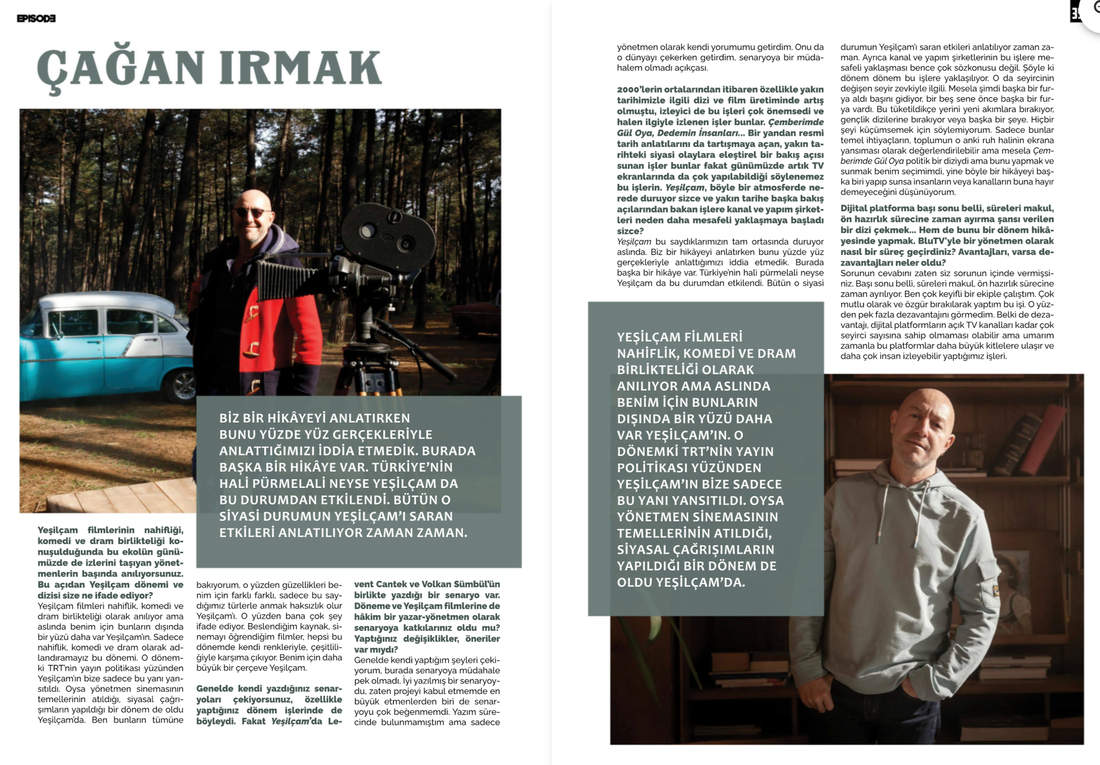
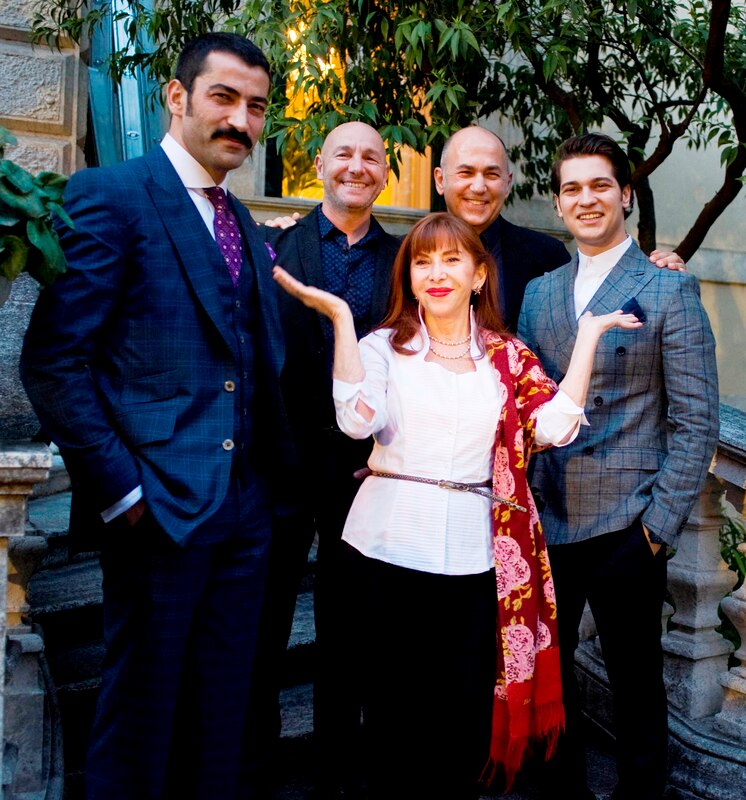
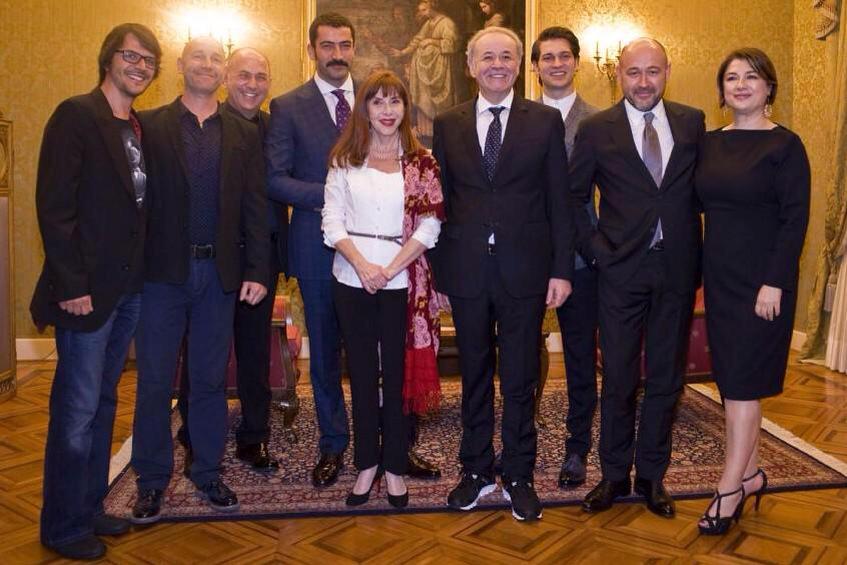
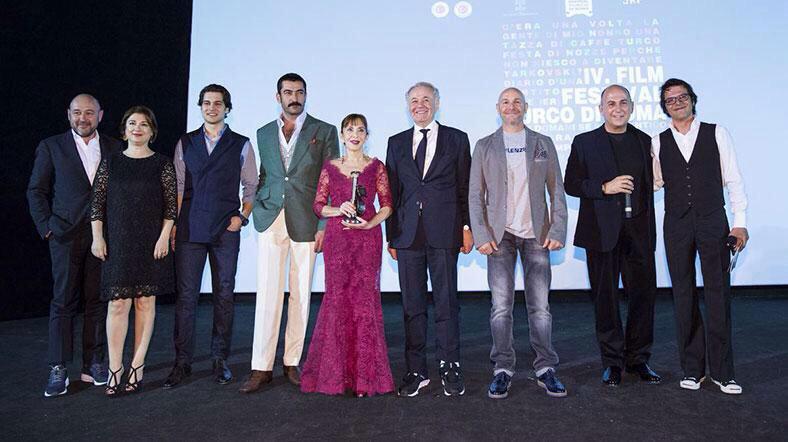
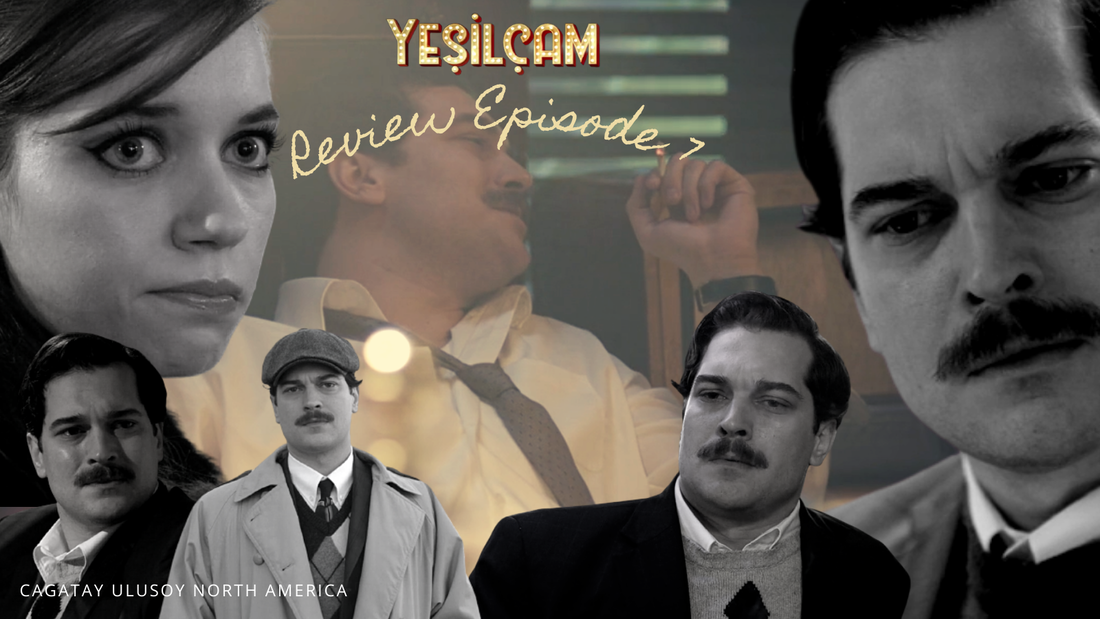
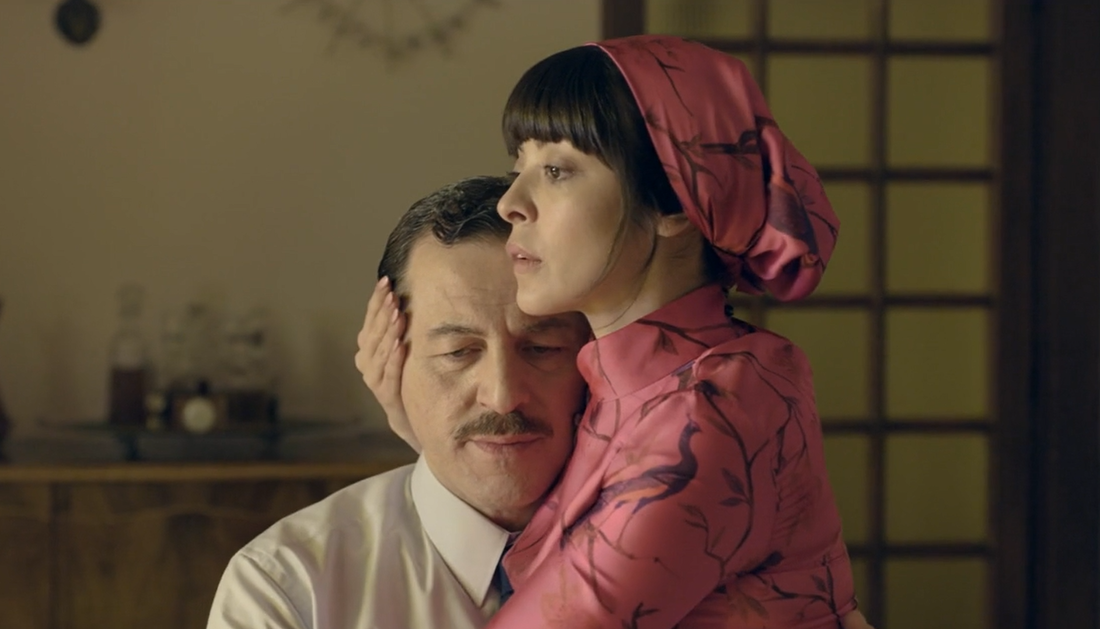

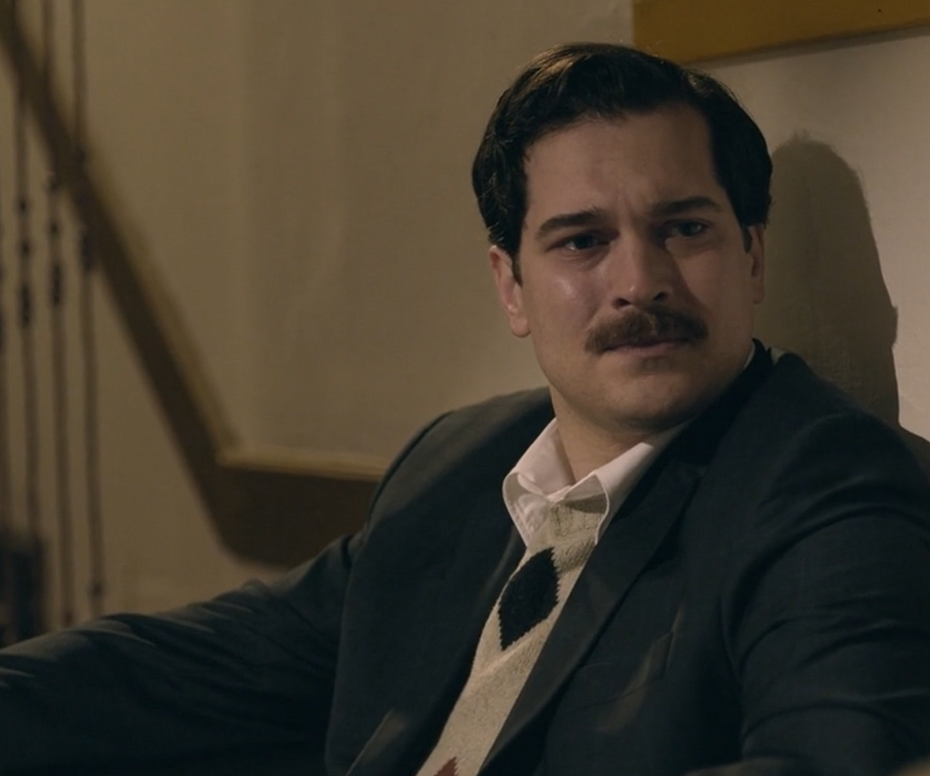
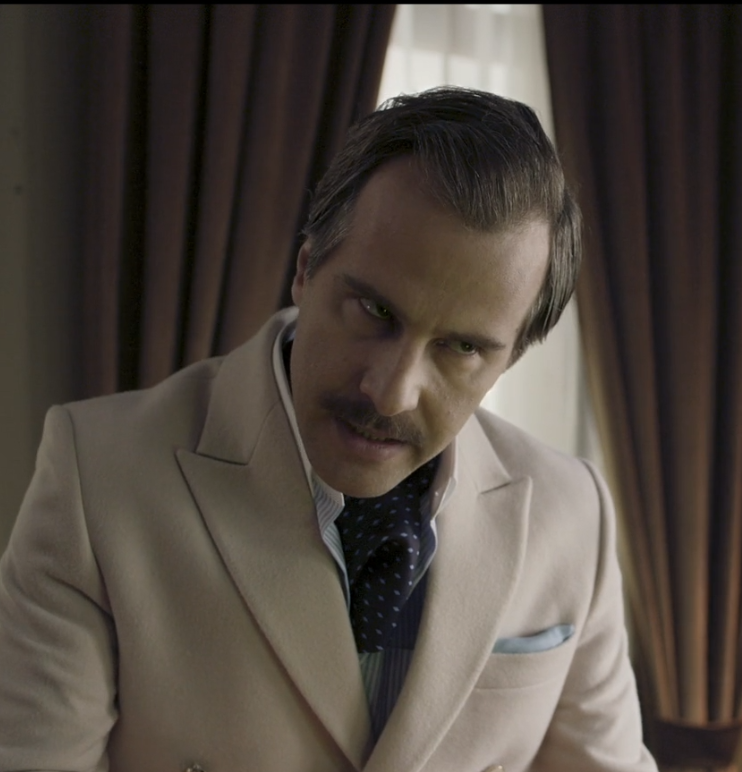
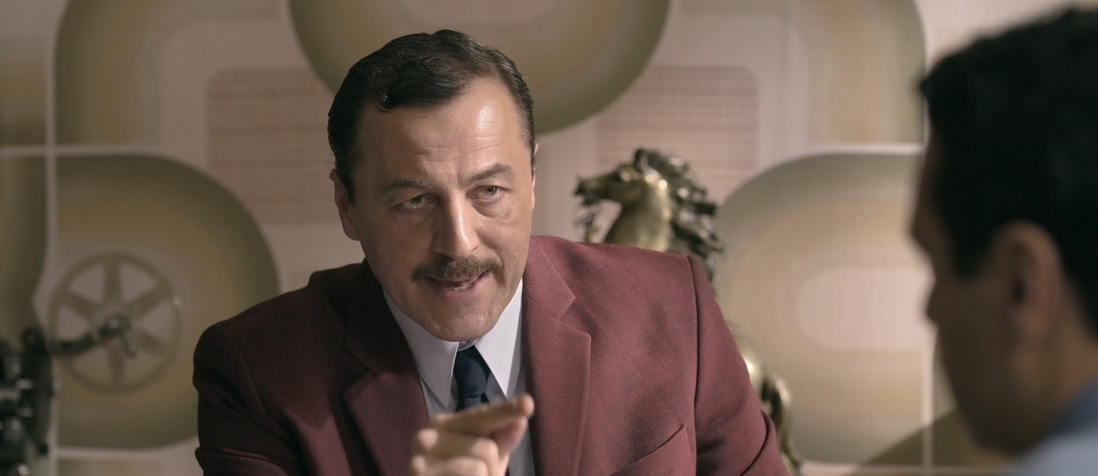
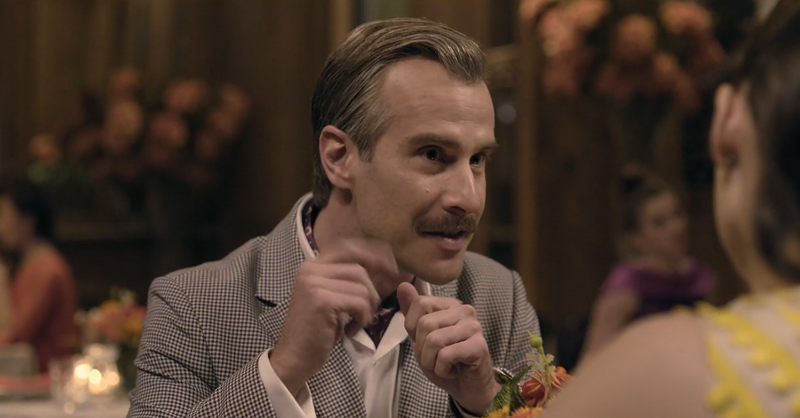

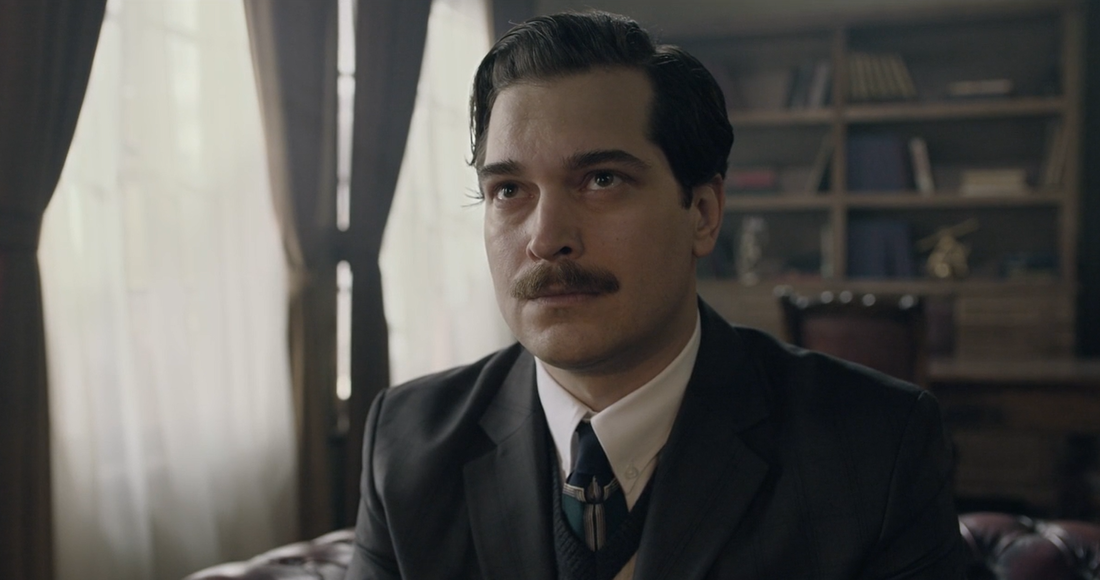
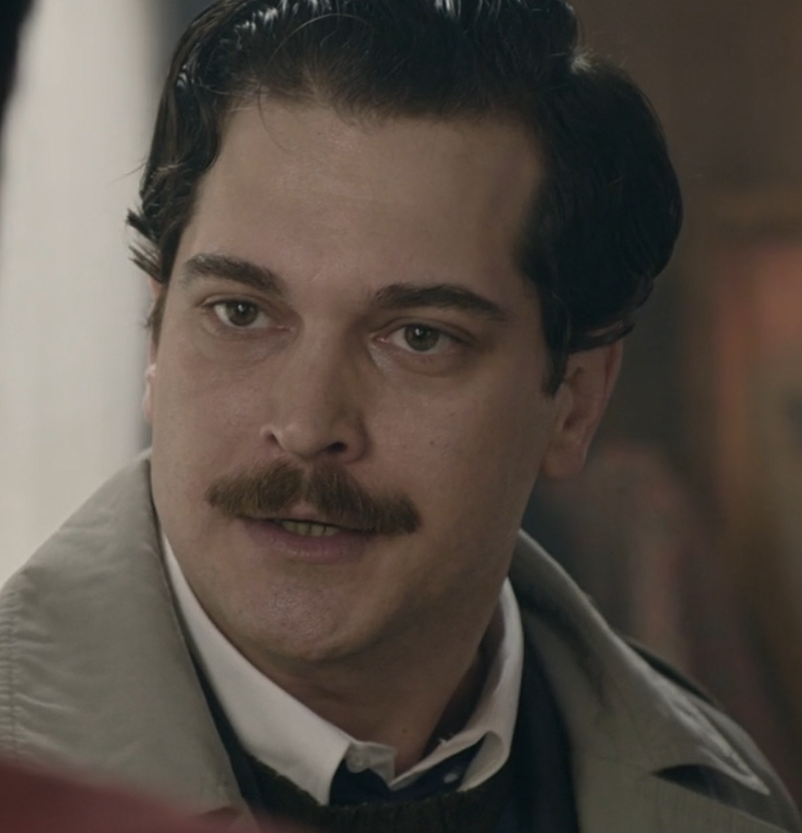
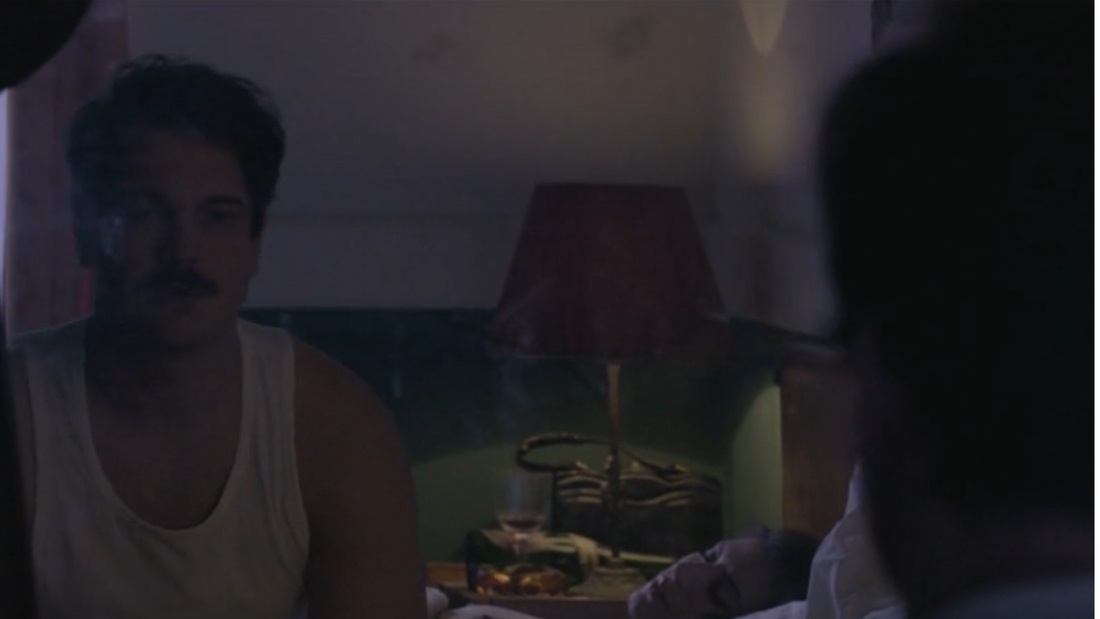
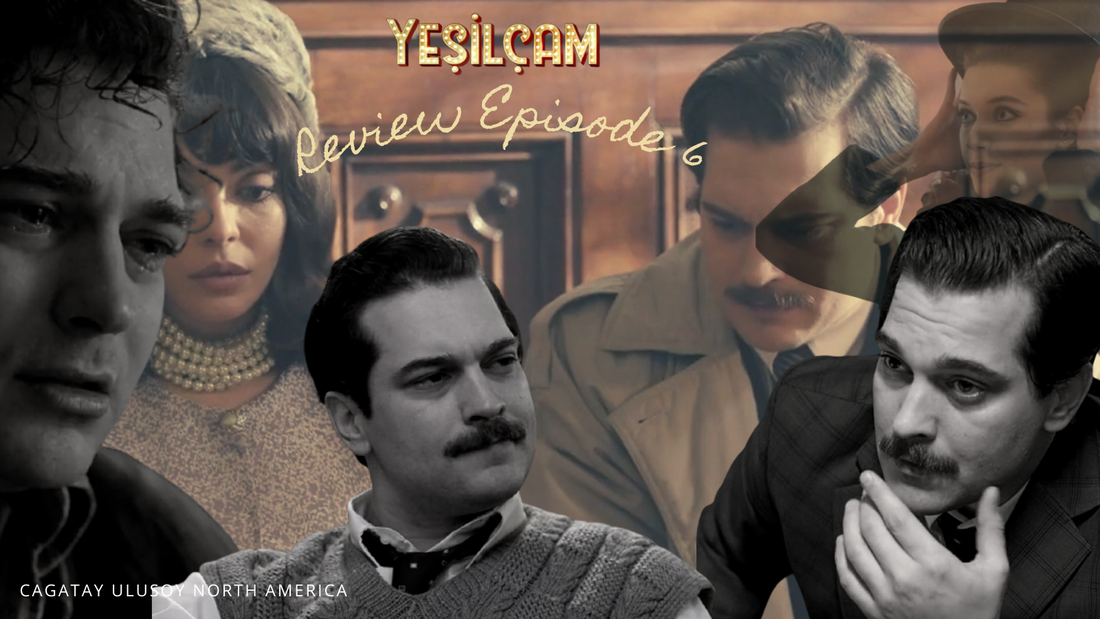
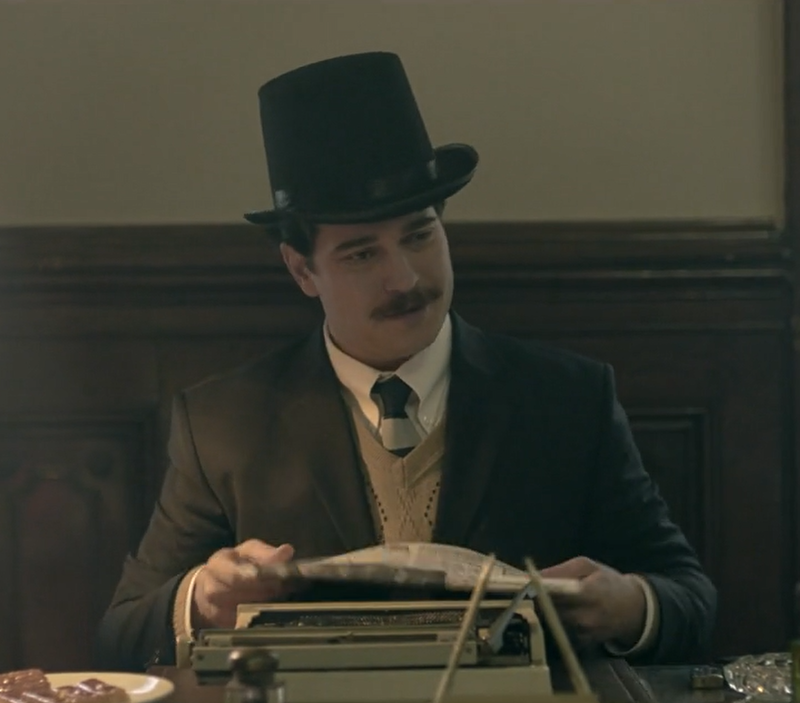
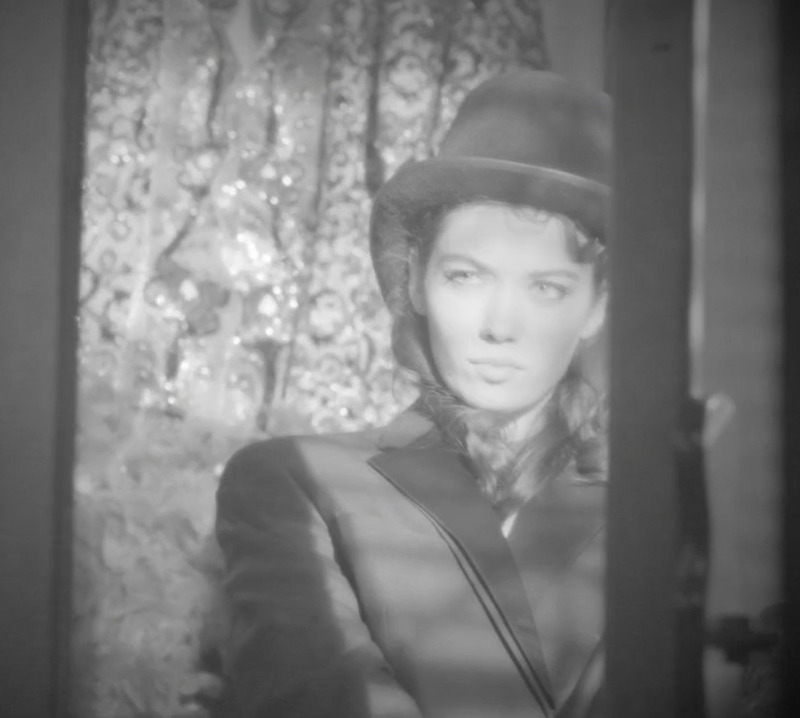
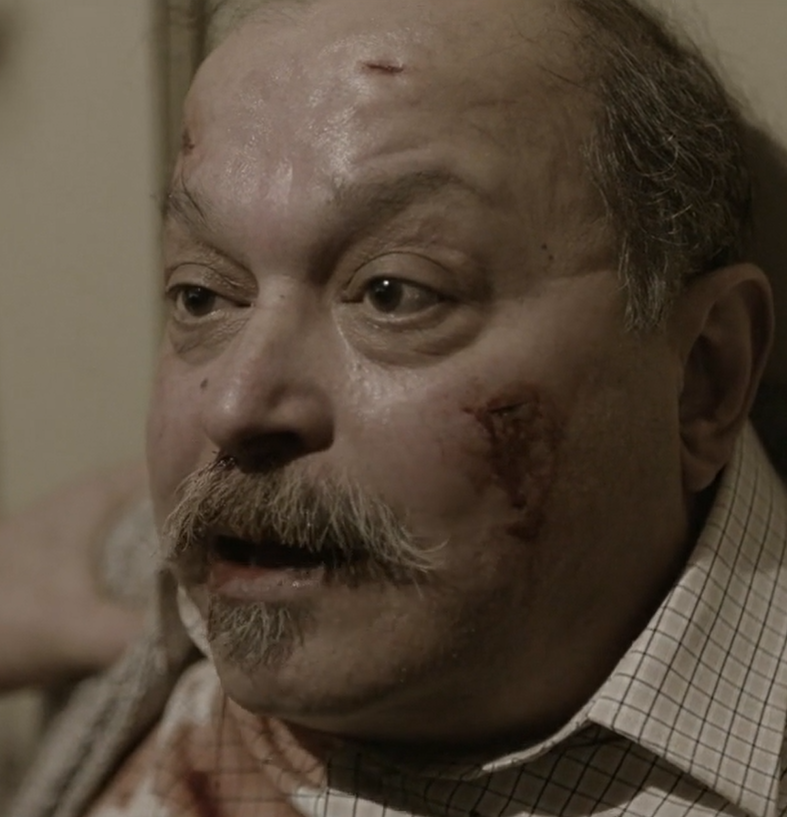
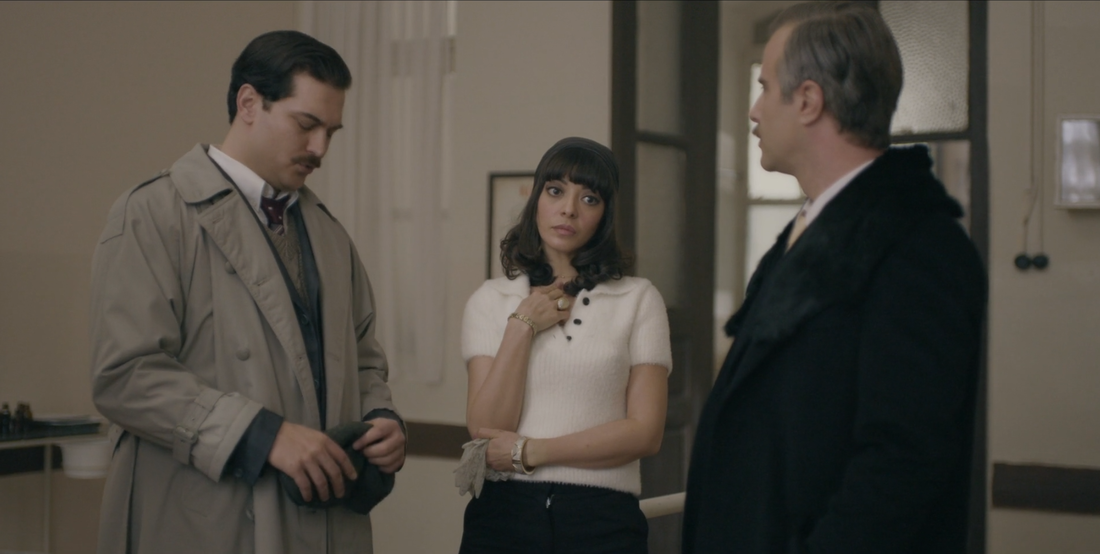
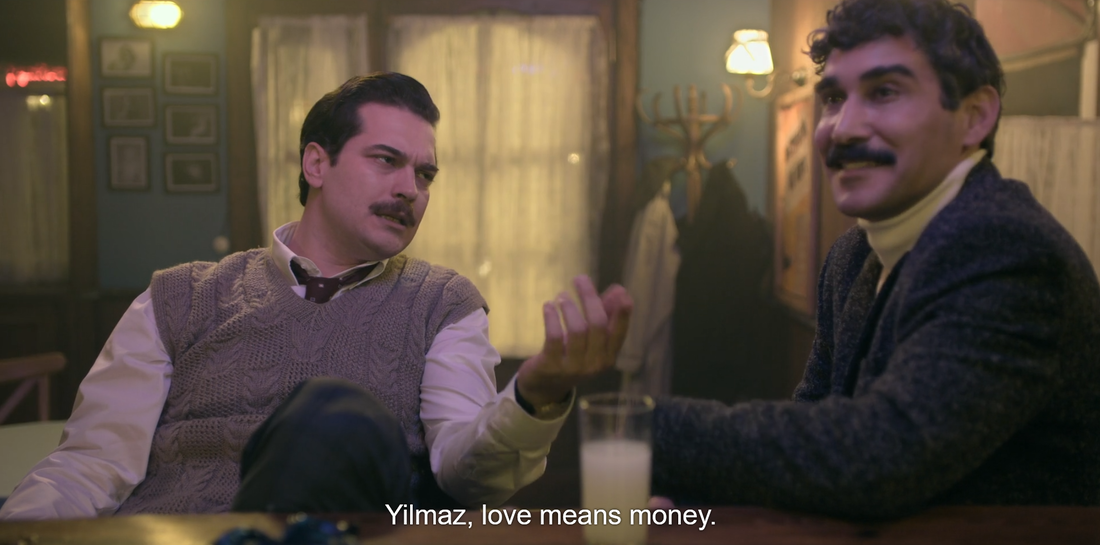


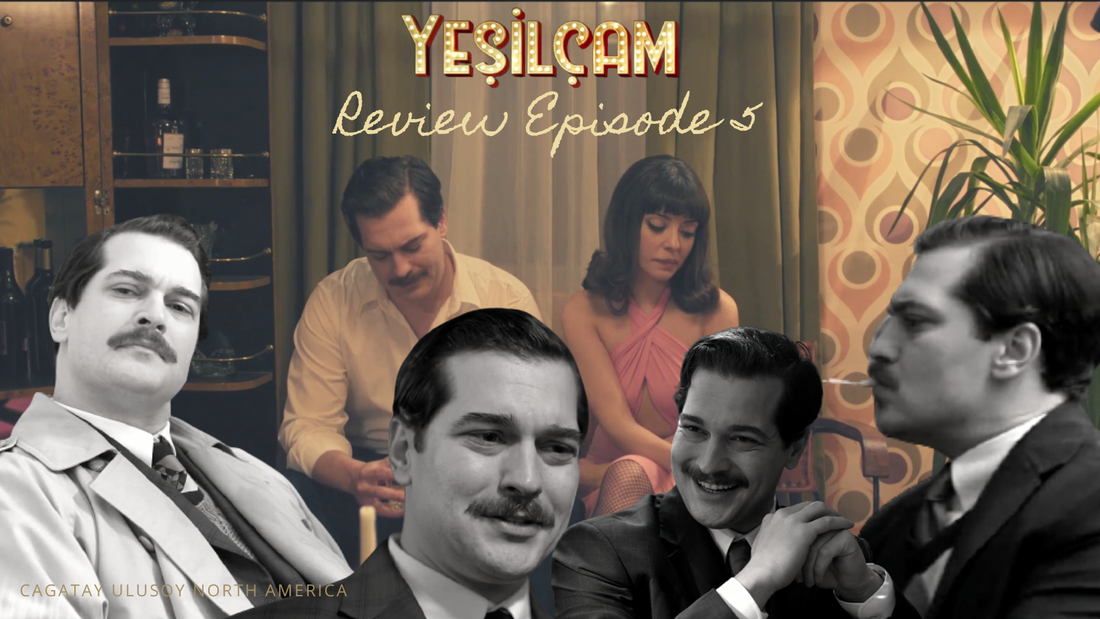
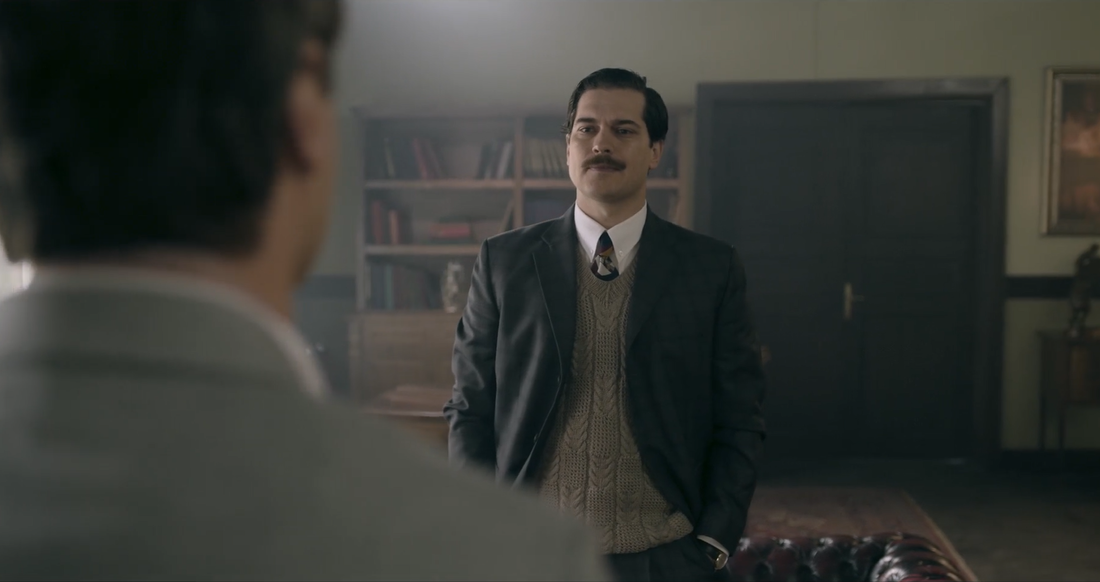
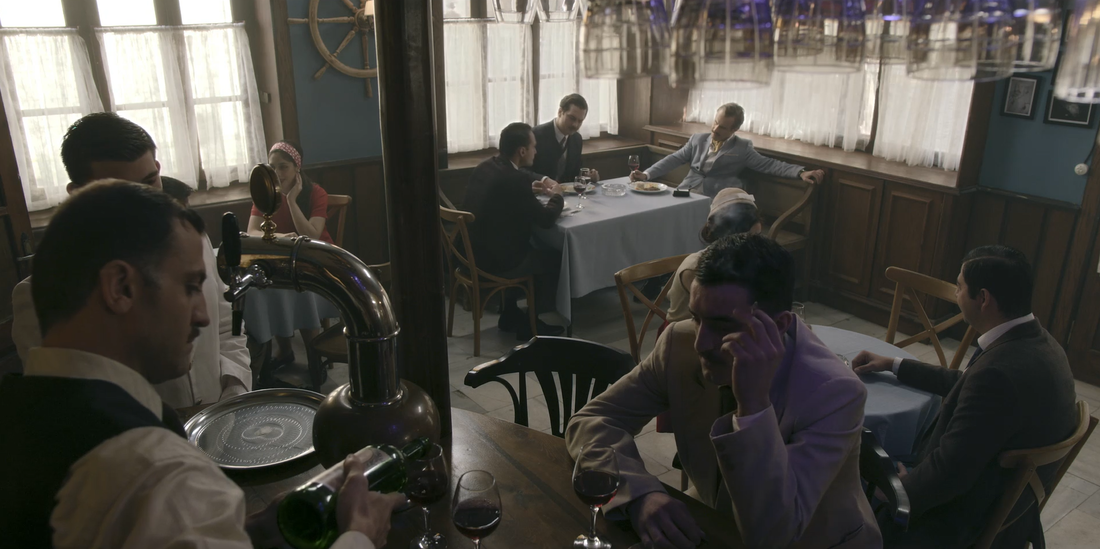
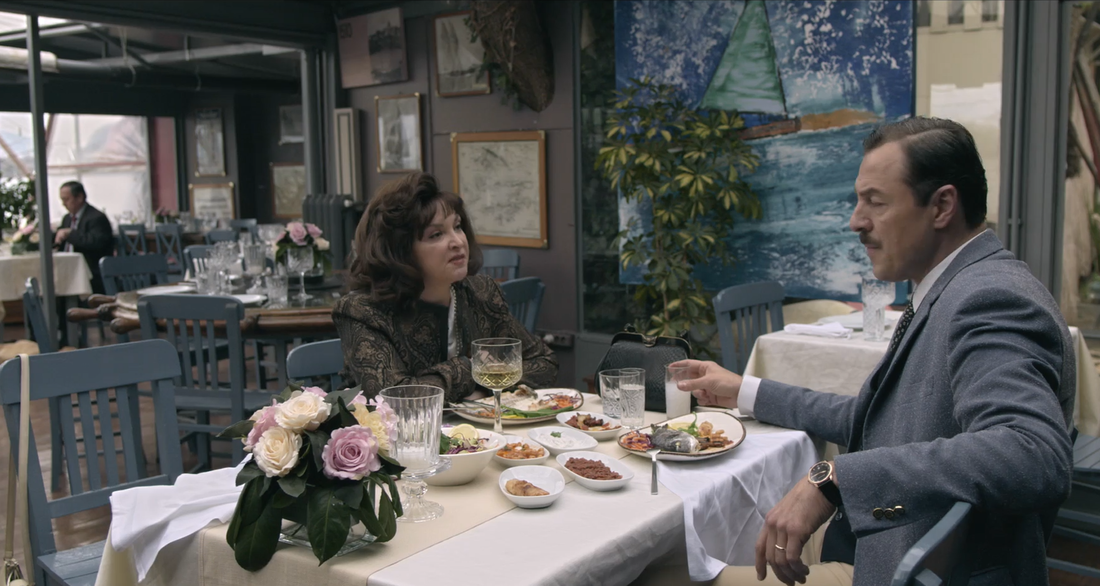
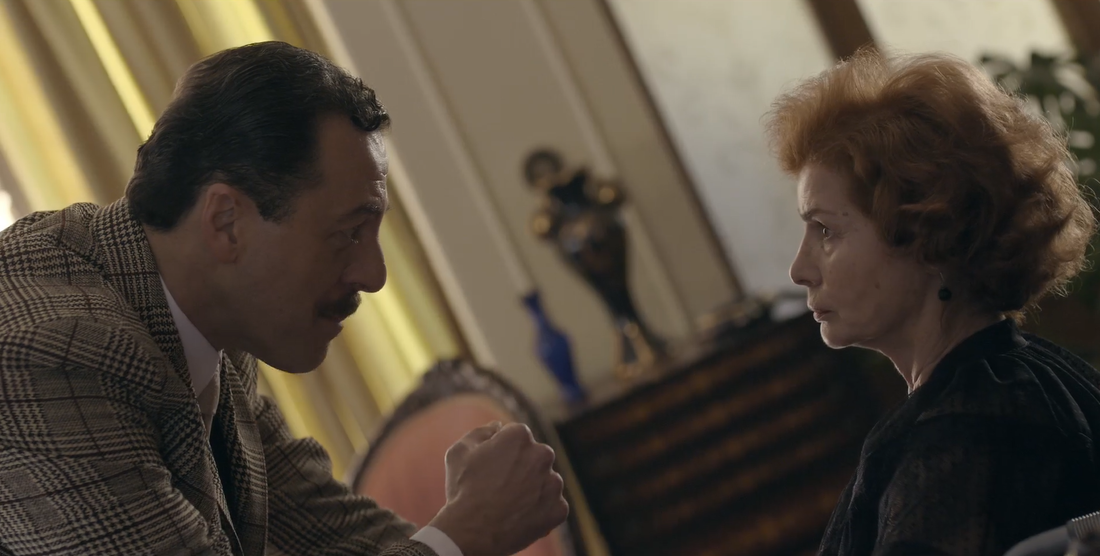

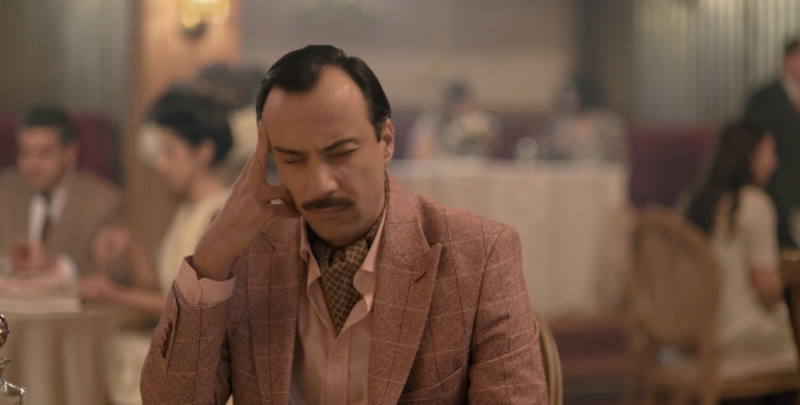
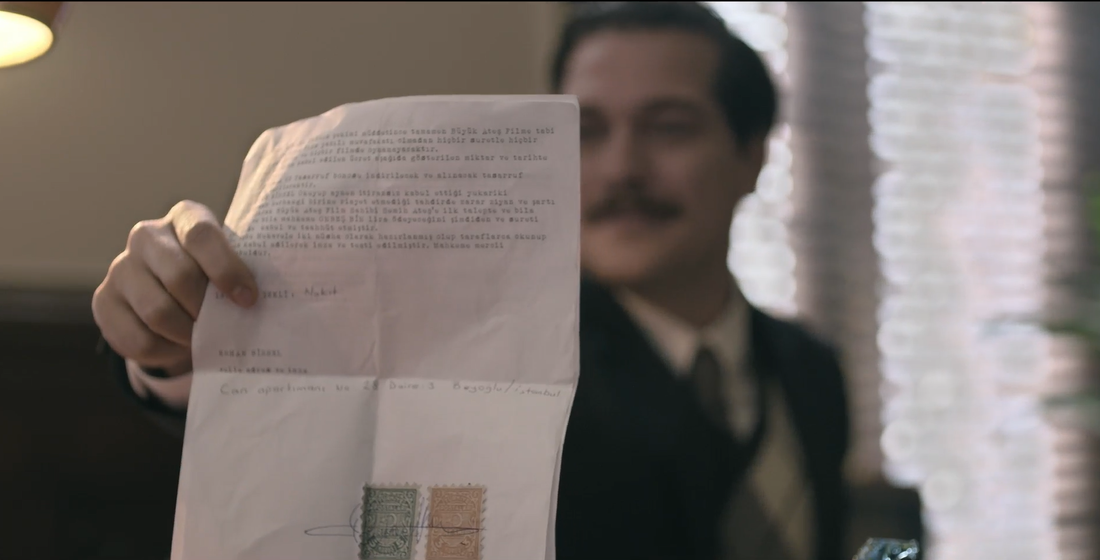

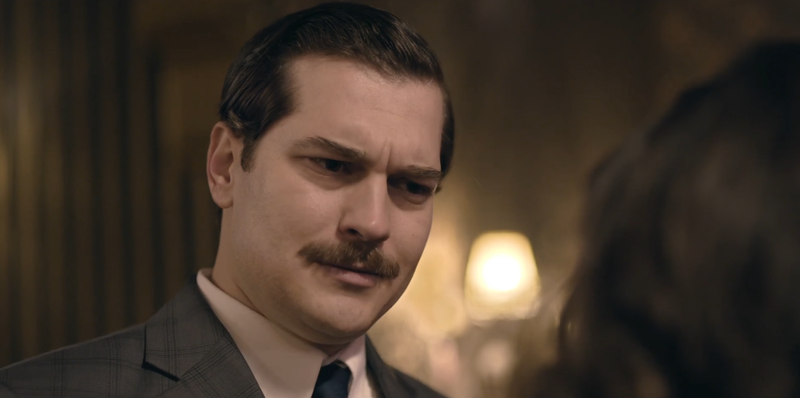


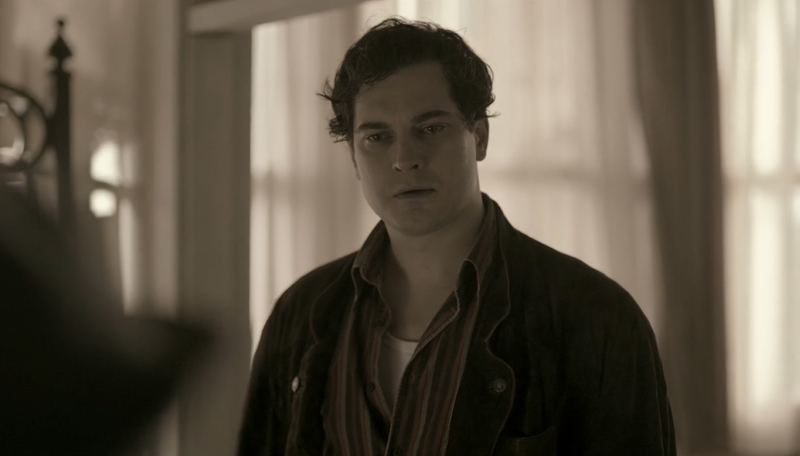
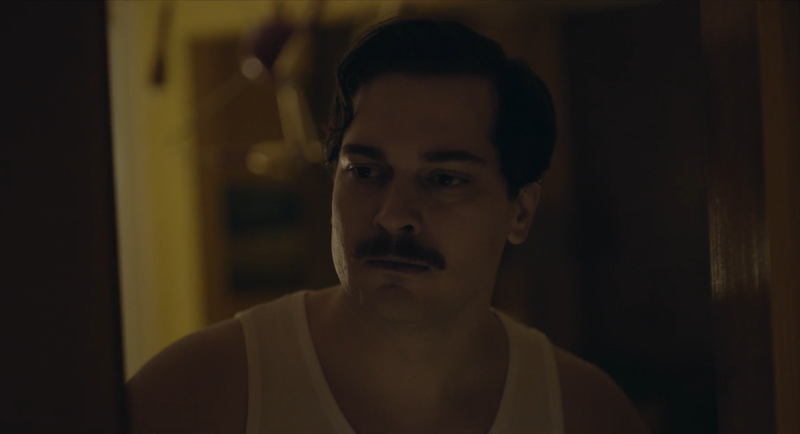
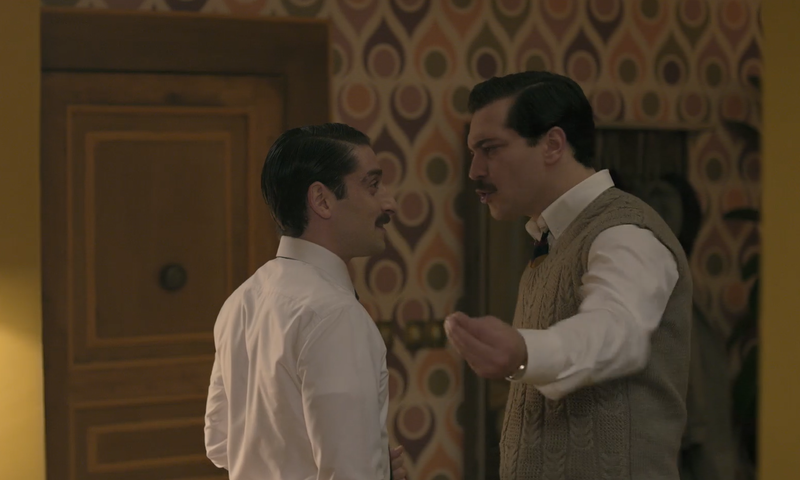
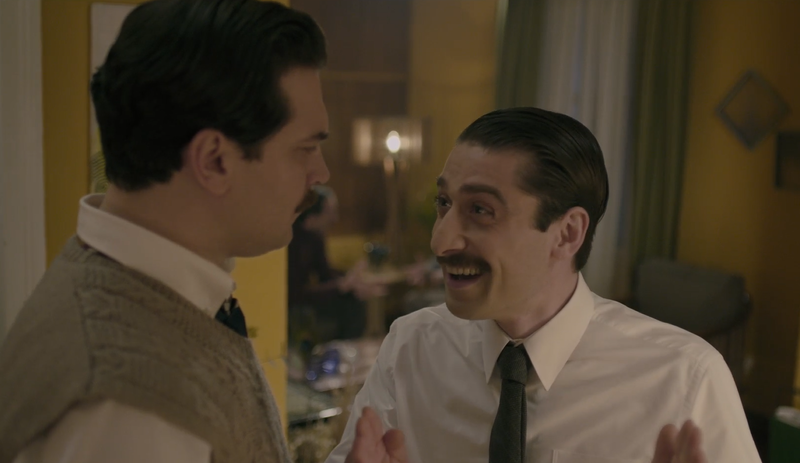
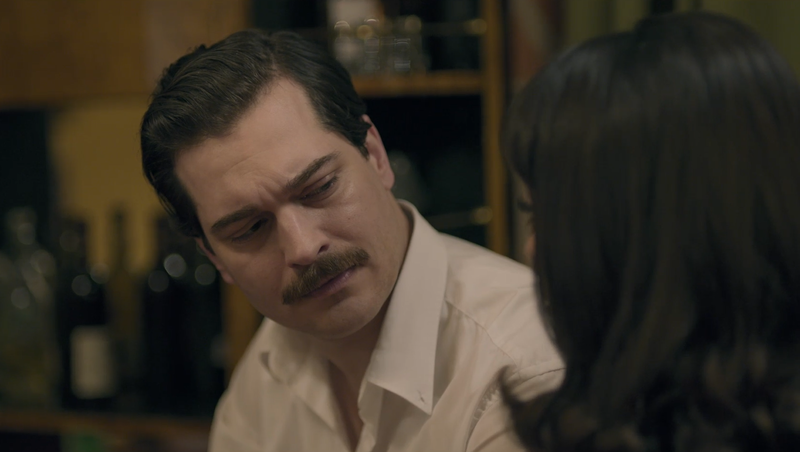

 RSS Feed
RSS Feed
